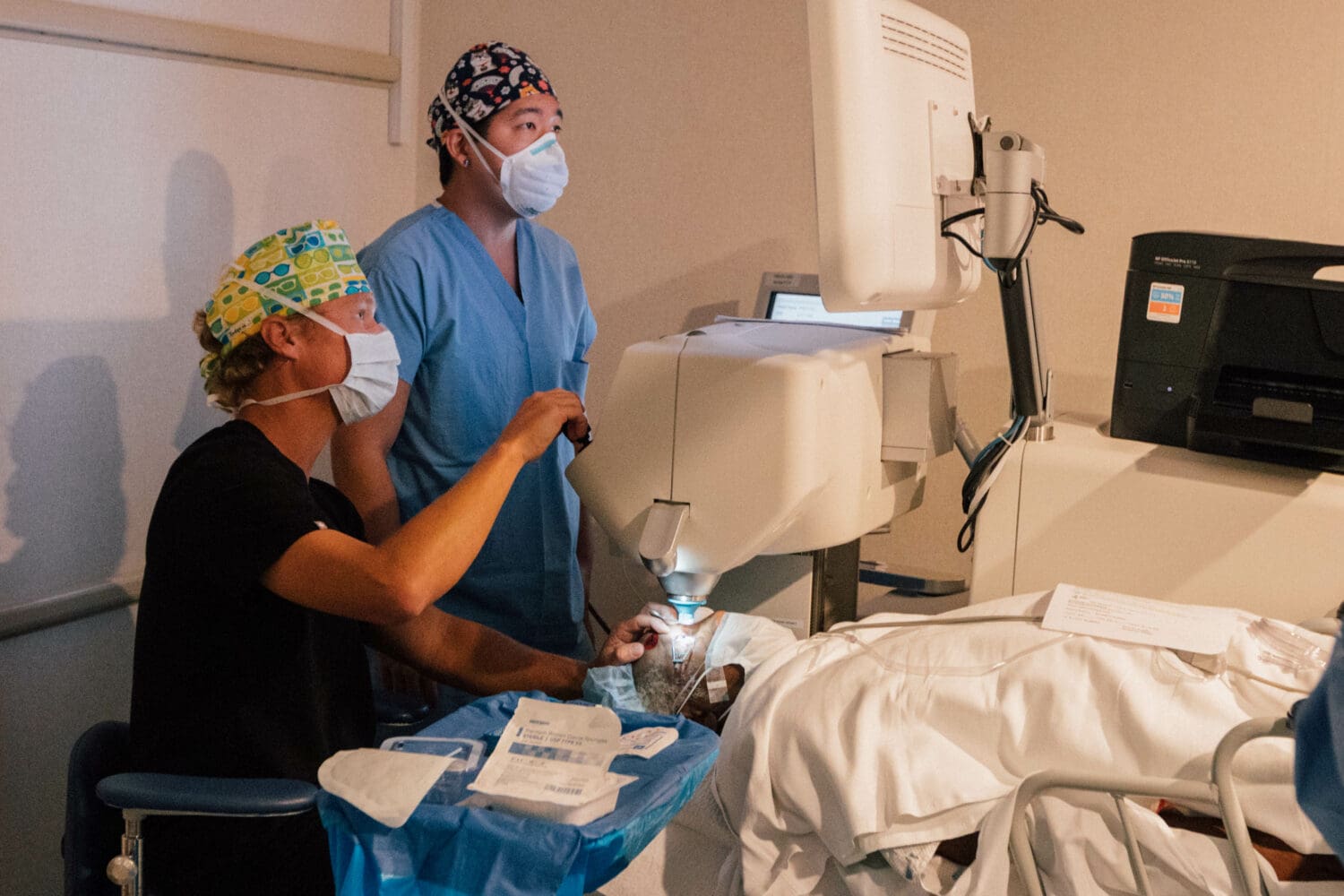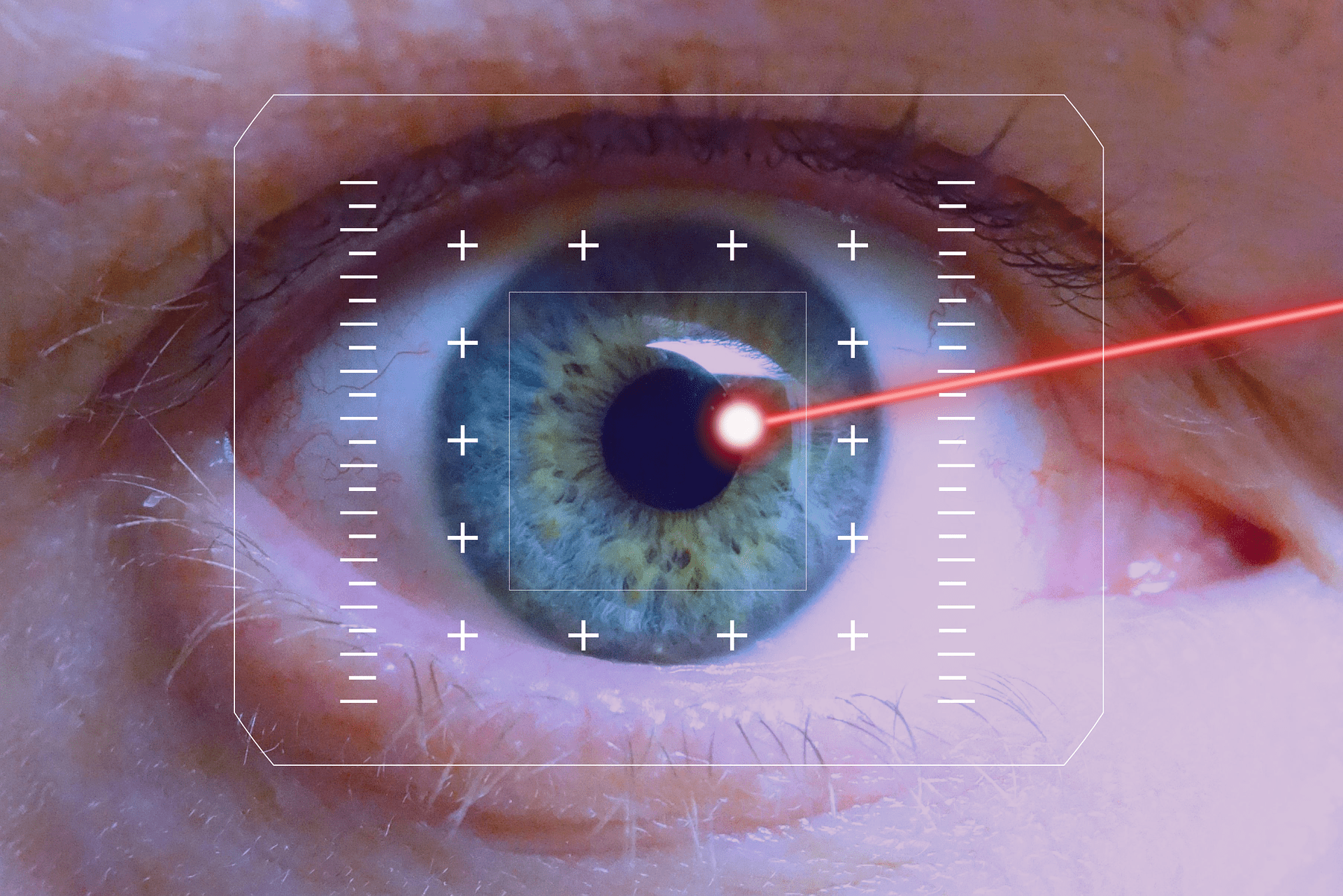LASIK eye surgery has transformed the lives of millions by offering a long-term solution to…

Dry Eye Syndrome: Causes, Symptoms, and the Most Effective Treatments
Do you suffer from dry eye syndrome (DES)? Dry eye leads to discomfort, vision issues, or even further damage if left untreated. Fortunately though, DES can be remedied with the proper treatment!
Causes of Dry Eye Syndrome
There are many factors that can cause DES. These include:
- Aging: As people age, tear production decreases, leading to dry eyes.
- Medical Conditions: Conditions such as diabetes, lupus, and rheumatoid arthritis can cause DES.
- Medications: Certain medications, including antihistamines, decongestants, and antidepressants, can cause DES.
- Hormonal Changes: Women who are pregnant or going through menopause may experience DES due to changes in their hormonal balance.
- Environmental Factors: Exposure to dry air, wind, and smoke can cause DES.
Symptoms of Dry Eye Syndrome
The symptoms of DES can vary depending on the severity of the condition. Common symptoms include:
- Dryness: The eyes may feel dry, gritty, or scratchy.
- Redness: The eyes may appear red or bloodshot.
- Burning: The eyes may feel like they are burning or stinging.
- Sensitivity to Light: People with DES may be sensitive to light or have difficulty seeing in bright light.
- Blurry Vision: Vision may be blurry or fluctuate throughout the day.
Effective Treatments for Dry Eye Syndrome
The most effective treatments for DES depend on the cause and severity of the condition. Some common treatments include:
- Artificial Tears: Lubricating eye drops can help to relieve dryness and discomfort.
- Prescription Eye Drops: Prescription eye drops may be necessary for more severe cases of DES.
- Punctal Plugs: Small plugs can be inserted into the tear ducts to help retain tears on the surface of the eye.
- Lifestyle Changes: Making changes to your lifestyle, such as taking breaks from screen time or using a humidifier, can help to reduce the symptoms of DES.
- Procedures: At Jenkins Eye Care, we offer TearCare, IPL, and BlephEx to help patients take control of their dry eye. Please contact us to learn more about these procedures.
Preventing Dry Eye Syndrome
While some factors, such as aging or medical conditions, may be out of our control, there are steps we can take to reduce our risk of developing DES. These include:
- Taking Frequent Breaks: Taking frequent breaks from screen time or other activities that require focused vision can help to reduce the risk of DES.
- Protecting Your Eyes: Wearing protective eyewear, such as goggles or sunglasses, can help to protect your eyes from environmental factors that can cause DES.
- Maintaining a Healthy Lifestyle: Eating a healthy diet, staying hydrated, and getting regular exercise can help to reduce the risk of DES.
All in all, DES is a frequent medical issue that can cause irritation and sight issues. Through recognizing the causes, indicators, and successful treatments available to us, we have the capacity to take precautionary measures and cure this condition – improving both our vision health as well as quality of life.
Prolonged technology use can affect eye dryness. If you’re experiencing dry eye disease, Jenkins Eye Care can help. Click here to learn about treatments we use for dry eye disease today!



